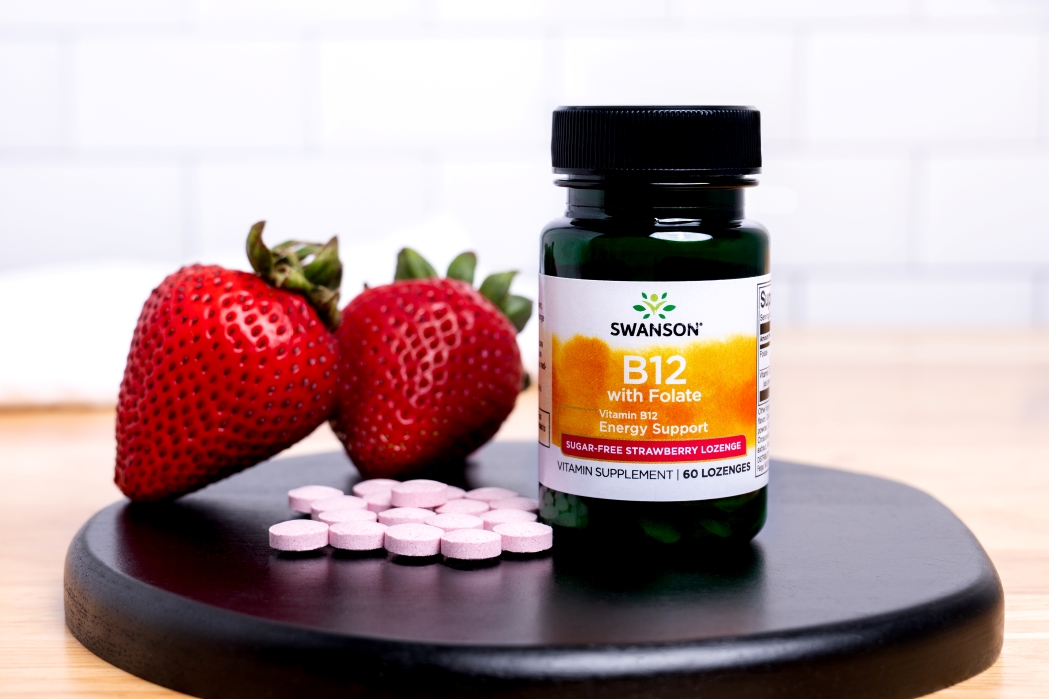Vitamin B12 and it's Cardiovascular Health Benefits

The Connection between Vitamin B12 and Cardiovascular Health
Extensive research has revealed a compelling connection between Vitamin B12 and cardiovascular health. Maintaining adequate levels of B12 is crucial for a healthy heart and optimal cardiovascular function. The association between B12 deficiency and increased risk of cardiovascular diseases such as heart disease, stroke, and high blood pressure has been well-documented.
One of the key mechanisms through which B12 influences cardiovascular health is its involvement in the regulation of homocysteine levels in the blood. Homocysteine, an amino acid, can be harmful when present in excessive amounts. High levels of homocysteine have been linked to an increased risk of cardiovascular problems. However, B12, along with other B vitamins like folate and B6, helps convert homocysteine into methionine, a more benign amino acid. By effectively reducing homocysteine levels, B12 contributes to maintaining cardiovascular health and reducing the risk of related complications.
Furthermore, Vitamin B12 plays a critical role in red blood cell production, which is vital for heart health. Red blood cells transport oxygen throughout the body, including the heart. Adequate oxygen supply is essential for optimal cardiac function. In cases of B12 deficiency, red blood cell production may be impaired, resulting in reduced oxygen delivery to the heart. This can lead to symptoms such as fatigue, shortness of breath, and an increased workload on the heart, potentially contributing to cardiovascular issues.
Role of Vitamin B12 in Maintaining Heart Health
Vitamin B12's role in maintaining heart health extends beyond homocysteine regulation and red blood cell production. B12 is involved in the metabolism of lipids, such as cholesterol and triglycerides, which are key factors in cardiovascular health. Adequate B12 levels support the breakdown and utilization of these lipids, helping to maintain healthy cholesterol levels and prevent the accumulation of harmful plaques in the arteries.
Moreover, B12 is essential for the proper functioning of the endothelial cells that line the blood vessels. These cells play a crucial role in regulating blood pressure, preventing inflammation, and promoting vascular health. B12 deficiency can impair endothelial function, compromising these vital functions and increasing the risk of cardiovascular complications.
In summary, Vitamin B12 is intricately linked to cardiovascular health. Its involvement in regulating homocysteine levels, supporting red blood cell production, and influencing lipid metabolism and endothelial function contributes to a healthy heart and optimal cardiovascular function. By ensuring adequate B12 intake, individuals can take proactive steps toward maintaining cardiovascular well-being.
To obtain cardiovascular benefits from Vitamin B12, it is crucial to ensure an appropriate dosage. The recommended daily intake of B12 for adults in the United Kingdom is approximately 1.5 micrograms (μg). However, specific needs may vary based on individual factors, including age, overall health, and potential underlying cardiovascular conditions.
In some cases, healthcare professionals may recommend higher doses of B12 or a combination of B vitamins to address specific cardiovascular concerns or conditions. It is important to consult with a healthcare provider to determine the optimal dosage for cardiovascular benefits based on your individual circumstances.
In conclusion, Vitamin B12 plays a vital role in cardiovascular health. It is associated with a decreased risk of cardiovascular diseases and supports heart function through its involvement in regulating homocysteine levels and promoting red blood cell production. To harness the cardiovascular benefits of B12, meeting the recommended dosage is essential. However, personalized guidance from healthcare professionals is crucial for tailoring the dosage to individual needs and optimizing cardiovascular health.
References
National Health Service (NHS). (2022). Vitamins and Minerals - B vitamins and folic acid. Retrieved from https://www.nhs.uk/conditions/vitamins-and-minerals/vitamin-b/
British Dietetic Association (BDA). (2019). Food Fact Sheet - Vitamin B12. Retrieved from https://www.bda.uk.com/resource/vitamin-b12.html
Office of Dietary Supplements - National Institutes of Health. (2021). Vitamin B12 Fact Sheet for Health Professionals. Retrieved from https://ods.od.nih.gov/factsheets/VitaminB12-HealthProfessional/
Garg, C. & Garg, M. (2020). Role of vitamin B12 in cardiovascular disease: A review. European Cardiology Review, 15(2), e07.
Huang, Y.-C., & Chang, S.-J. (2020). Association between Vitamin B12 Levels and Coronary Artery Disease: A Systematic Review and Meta-Analysis. Nutrients, 12(10), 2963.
Kumar, A., Kaur, H., Devi, P., & Mohan, V. (2021). Vitamin B12 Supplementation and Cardiovascular Outcomes: A Systematic Review and Meta-Analysis. Journal of Clinical Medicine Research, 13(8), 474-485.
Weir, D. G., Scott, J. M., & Molloy, A. M. (2019). Metabolism of vitamin B12 in mammals. Biochemical Journal, 476(14), 1861-1878.
Chittaranjan, Y., & Babu, S. (2019). Cobalamin Deficiency: Clinical Picture and Radiological Findings. Journal of Clinical Imaging Science, 9, 46.
Reinstatler, L., Qi, Y. P., Williamson, R. S., Garn, J. V., Oakley, G. P., & Association between serum B12 level and neuropathy in older adults: results from the National Health and Nutrition Examination Survey 1999–2002. Journal of the American Geriatrics Society, 59(12), 2204–2209.















